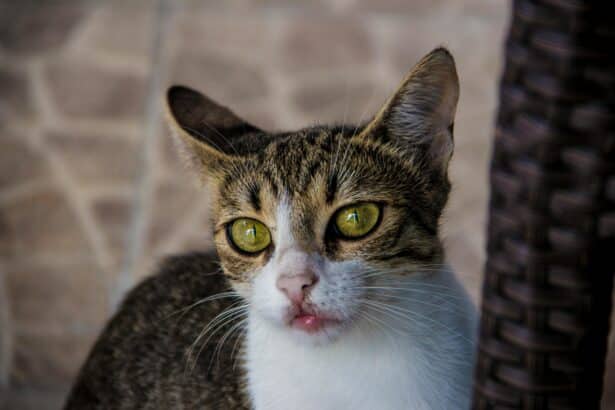Understanding your beloved cat’s lifespan is crucial if she is to enjoy her life with you to the full. Big or small, hairy or bald, every feline has its own personality and needs. This variety is one of the reasons why we appreciate these wonderful creatures so much. Now let’s get to the heart of the matter at hand: how long does a cat live?
Deciphering a cat’s lifespan: basic facts
Different phases in a cat’s life
Like humans, cats go through various stages in their lives. It starts with the kitten stage, when their curiosity and energy seem boundless. This is followed by the young adult phase, a period often marked by high activity and constant exploration of their environment. This continues until adulthood, when they reach full physical maturity.
Beyond the adult phase comes the mature adult period – an era characterized by a slower pace of life and certain adaptations to changing physical conditions. Finally, the cat enters the senior phase, a stage when the signs of age start to become more apparent and he may require more specific and attentive health care.
Each of these phases has its own particularities in terms of care, nutrition and health. By better understanding these life phases, you can provide your cat with the right care at every essential moment of its life.
Average lifespan of a cat
The average lifespan of a domestic cat depends greatly on its breed and environment. An indoor cat can easily live up to 15 years, or even more in some glorious cases. However, this lifespan is strongly influenced by a number of factors, some of which we’ll examine more closely later in this article.
Whereas outdoor cats generally have a shorter lifespan, often due to higher environmental risks, such as natural predators, diseases transmitted by other animals, extreme weather, and unfortunate car accidents. Even so, providing your cat with a healthy diet, regular medical care and a safe environment can significantly increase its lifespan.
Factors influencing cat lifespan
Genetics and race
Genetics can play a significant role in your feline’s lifespan. Some breeds have a longer lifespan than others, thanks to inherent genetic traits that make them more resistant to disease and other health-damaging factors.
For example, the Maine Coon breed, known for being large and robust, has an average lifespan of 10 to 13 years. Sphynx cats, on the other hand, can easily reach and exceed 14 years of age, thanks to their generally solid constitution and tolerance to a variety of environmental conditions.
However, while genetics are a substantial factor in a cat’s lifespan, they are not the only element to be taken into account. Factors such as the cat’s care, diet and level of physical activity can also have a significant impact on its lifespan, whatever the breed.
Care and feeding
Without a doubt, proper nutrition is the cornerstone of your cat’s health. A proper diet, filled with quality proteins, healthy fats and a moderate amount of fiber, can dramatically increase your cat’s lifespan.
A balanced diet is necessary not only to keep a cat’s weight under control, but also to strengthen its immune system, ensure healthy digestion, maintain a healthy skin and coat, and prevent the development of certain serious diseases. Learning how to provide your cat with a healthy diet is therefore an essential prerequisite for him to enjoy a long and vigorous life. For more information on the recommended diet for your feline, please consult this article here.
The living environment
By properly managing your feline’s environment, you can greatly improve its lifespan. Cats living indoors, for example, are generally less exposed to environmental threats and tend to live longer than their outdoor counterparts.
This doesn’t mean, however, that indoor cats are completely risk-free. Infectious diseases, parasites and injuries can still occur, even in the most controlled environment. So it’s essential to keep a close eye on your cat’s environment and make it as safe as possible, to ensure that your companion enjoys an optimal quality of life.
Maximizing your cat’s lifespan
Balanced diet: the basis for a long life
Above all, providing your cat with a balanced diet is probably the most effective way to prolong its life. A diet rich in quality proteins, low in fat and packed with essential vitamins and minerals can make a considerable difference to the health and longevity of your beloved feline.
Avoid cheap cat food and sugary treats, which can lead to obesity and other health problems. Instead, opt for high-quality foods designed to meet your cat’s nutritional needs while keeping its weight under control. For more details on the right diet for your cat, please consult our cat feeding tips.
Exercise: an essential way to keep your cat healthy
Good nutrition is essential, but so is exercise. A healthy cat needs to maintain a good balance between activity and rest. Regular exercise can help control your cat’s weight, provide mental and physical stimulation, reduce stress and improve overall health.
Finding ways to get your cat moving can be a delightful task! Interactive games, such as feather toys or laser pointers, can not only help maintain a healthy weight, but also strengthen the bond between you and your feline companion. Having fun and looking after your cat’s health have never been so easily compatible!
Regular veterinary visits: a guarantee of good health
Regular visits to the vet are essential to guaranteeing quality health care for your beloved cat. A veterinarian can detect potential health problems before they become serious, and offer advice on diet, physical activity and other care factors to improve your cat’s quality of life and life expectancy.
For adult cats, a veterinary visit every 6 to 12 months is generally recommended. However, this can vary depending on your cat’s breed, age, health and lifestyle. Your vet can help you determine the right frequency of visits for your feline to ensure a long and happy life.
In conclusion, while your cat’s lifespan may depend on a number of factors ranging from genetics to the environment and care you provide, it’s certain that your involvement and commitment as a cat owner can have a significant impact. By providing quality food, maintaining physical activity levels, ensuring a safe environment and scheduling regular visits to the vet, you can give your cat the best chance of living a long, rich and fulfilling life by your side.





